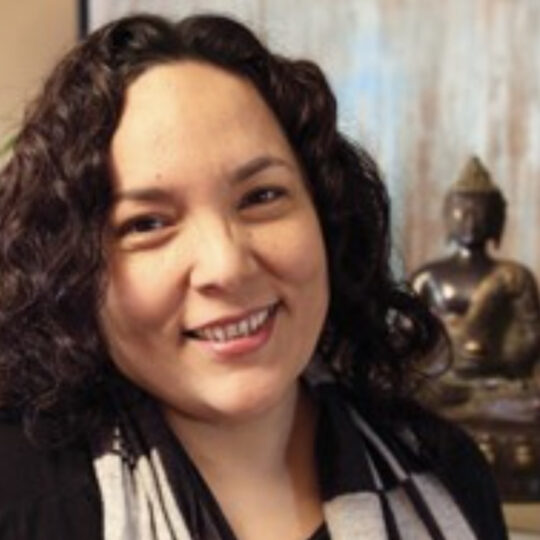Please note this retreat meets the requirements for participants in Jack Kornfield + Tara Brach’s Mindfulness Meditation Teacher Certification program through Sounds True. Please read the Criteria for MMTCP Retreat Attendance Requirements.
A Retreat for all Self-Identified BIPOC Women
Living in a world fueled by the frantic energy of crisis and reaction has become the new norm. Our addiction to technology, pressure to achieve at all costs, and the difficulty of discerning what is real while living in a world of fractured truths, has made finding peace and ease challenging. Efforts aimed at controlling cis and transgender women’s bodies compound our sense of unsettledness. When we slow down enough to turn a nurturing attentiveness toward the mind, body and heart, we find it entirely possible to access an inner calm that brings clarity, joy and peace.
The foundational teaching for this retreat will be centered around Equanimity. We will be guided into Dharma practices that revive our capacity to access balance, collectedness and calm in the midst of the ever-present chaos of our world. Through silence, guided meditation, Dharma reflections, and accessible forms of contemplative movement, we will practice opening our hearts to renewed possibilities of spaciousness, wonder and liberation.
Sitting (or stationary) Meditation: Sitting meditation is at the heart of silent retreats. In sitting practice silence and stillness develop, concentration deepens, and awareness expands. Through training the heart, kindness and compassion are awakened to meet all that arises within awareness. We come into presence and learn to find freedom in the midst of life as it truly is. The Buddha invited us to establish mindfulness in all postures. For those who find sitting is not possible for their body, alternate stationary postures are suggested.
Walking Meditation (or movement meditation): Throughout the retreat we learn to cultivate mindful awareness in all postures: sitting, walking, standing, and lying down. In mindful walking meditation practice, we learn to sustain meditative awareness through movement, and establish continuity of mindfulness in the midst of activity. Walking meditation helps us to bridge the gap between our experiences in seated meditation and daily life. We alternate between sitting and walking meditation to support the establishment of mindfulness and concentration and to balance the factors of energy and calm in our practice. The Buddha invited us to establish mindfulness in all postures. For those who find walking meditation is not possible, alternate forms of mindful movement are suggested.
Eating Meditation: Instructions will be given on how to integrate the process of nourishment and eating as a meditation during retreat for continuity of mindfulness and a deepening of practice. Retreatants are encouraged to bring the same calm, focused attention to eating as is brought to sitting, walking, and other activities. Through reflection on the Buddhist teaching of interdependence, we have the opportunity to slow
down and recognize each bite of food we eat is a result of countless causes and conditions and to appreciate the blessing of mindful nourishment.
Schedule:
Start Time and End Time: Coming Soon!
Dana/Generosity: There will also be an opportunity to offer Dana for the teachers and center at the end of the retreat. Thank you for your support!






